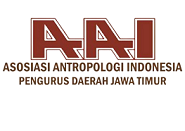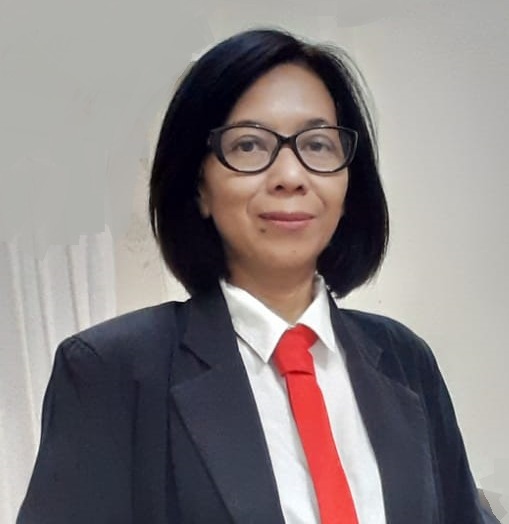Embracing virtual support: A phenomenological study on the lived experiences of Filipino guidance counselees during the Covid-19 pandemic
Downloads
The Covid-19 pandemic profoundly impacted student and faculty well-being, necessitating a closer examination of guidance counselee experiences in virtual counseling. This research aims to address the unique challenges and benefits of virtual counseling during crises and improve guidance counseling delivery. This qualitative research explored the experiences and challenges of Filipino guidance counselees during virtual counseling amid the pandemic using phenomenological inquiry. Ten purposively selected participants underwent in-depth interviews, then the information was transcribed and analyzed thematically. Analysis revealed three major themes: Psychological struggles, challenges of virtual counseling, and the importance of virtual counseling. Participants discussed psychological struggles, pre-existing mental health conditions, and challenges like poor Internet connectivity. They emphasized the significance of virtual counseling for well-being. The findings underscore recognizing and addressing counselees' psychological struggles during the pandemic. Effective support must mitigate challenges like technological literacy and resource constraints. Virtual counseling maintains connections despite social distancing restrictions. This research provides valuable insights into guidance counselee experiences during the Covid-19 pandemic in the Philippines. It emphasizes embracing virtual counseling advantages while addressing specific challenges. Policymakers and school leaders should recognize counselor expertise and provide comprehensive support. Further research is recommended to develop interventions for different age groups and educational levels. Understanding and supporting guidance counselees to promote mental health and overall development.
Amos, P. M., Bedu-Addo, P. K. A., & Antwi, T. (2020). Experiences of online counseling among undergraduates in some Ghanaian Universities. SAGE Open, 10(3), 1–11. https://doi.org/10.1177/2158244020941844
Arnado, J. A. S., & Bayod, R. P. (2020). Help seeking behavior of young Filipinos amidst pandemic: The case of Cor Jesu College students. Eubios Journal of Asian and International Bioethics, 30(8), 463–467.
Burns, D., Dagnall, N., & Holt, M. (2020). Assessing the impact of the COVID-19 Pandemic on student wellbeing at universities in the United Kingdom: A conceptual analysis. Frontiers in Education, 5. https://doi.org/10.3389/feduc.2020.582882
Colaizzi, P. F. (1978). Psychological Research as the Phenomenologist Views It. In R. S. Valle & M. King (Eds.), Existential Phenomenological Alternatives for Psychology (pp. 48–71). Oxford University Press.
Creswell, J. W. (2007). Qualitative Inquiry and Research Design: Choosing among Five Approaches (3rd Ed). Thousand Oaks, California: Sage Publications.
Dimri, A. K. (2021). E-counselling support during COVID-19 pandemic: Analysis of learners' feedback. Asian Association of Open Universities Journal, 16(2), 145–160. https://doi.org/10.1108/AAOUJ-10-2020-0084
Li, T. M. H., & Leung, C. S. Y. (2020). Exploring student mental health and intention to use online counseling in Hong Kong during the COVID"19 pandemic. Psychiatry and Clinical Neurosciences, 74(10), 564–565. https://doi.org/10.1111/pcn.13117
Liang, L., Ren, H., Cao, R., Hu, Y., Qin, Z., Li, C., & Mei, S. (2020). The effect of COVID-19 on youth mental health. Psychiatric Quarterly, 91, 841–852. https://doi.org/10.1007/s11126-020-09744-3
Mendez, C. (2020). Stress, anxiety, depression on the rise among gen Z, millennial employees and those working from home – Survey. Retrieved December 10, 2021, from OneNetwork website: https://www.onenews.ph/articles/stress-anxiety-depression-on-the-rise-among-gen-z-millennial-employees-and-those-working-from-home-survey
Merriam, S. B. (2009). Qualitative Research: A Guide to Design and Implementation. San Francisco, CA: Jossey-Bass.
Mielgo-Conde, I., Seijas-Santos, S., & Grande-de-Prado, M. (2021). Review about online educational guidance during the COVID-19 pandemic. Education Sciences, 11(8), 411. https://doi.org/10.3390/educsci11080411
Moustakas, C. (1994). Phenomenological Research Methods. London: Sage.
Putri, N. S. (2021). The influence of the Covid-19 Pandemic on young online businesses. Indonesian Journal of Social Sciences, 13(1), 1–10. https://doi.org/10.20473/ijss.v13i1.26349
Savitz-Romer, M., Rowan-Kenyon, H. T., Nicola, T. P., Alexander, E., & Carroll, S. (2021). When the Kids Are Not Alright: School Counseling in the Time of COVID-19. AERA Open, 7(1), 1–16. https://doi.org/10.1177/23328584211033600
Situmorang, D. D. B. (2020). Online/cyber counseling services in the COVID-19 outbreak: Are they really new? Journal of Pastoral Care & Counseling, 74(3), 166–174. https://doi.org/10.1177/1542305020948170
Supriyanto, A., Hartini, S., Irdasari, W. N., Miftahul, A., Oktapiana, S., & Mumpuni, S. D. (2020). Teacher professional quality: Counselling services with technology in Pandemic Covid-19. Counsellia: Jurnal Bimbingan Dan Konseling, 10(2), 176–189. https://doi.org/10.25273/counsellia.v10i2.7768
Wieczorek, T., Kołodziejczyk, A., Ciułkowicz, M., Maciaszek, J., Misiak, B., Rymaszewska, J., & Szcześniak, D. (2021). Class of 2020 in Poland: Students' mental health during the COVID-19 outbreak in an academic setting. International Journal of Environmental Research and Public Health, 18(6), 2884. https://doi.org/10.3390/ijerph18062884
World Health Organization. (2020). Covid-19 and mental health. Retrieved December 10, 2021, from World Health Organization website: https://www.who.int/westernpacific/emergencies/covid19/information/covid-19-mental-health
Yuniarti, W., Asrowi, & Yusuf, M. (2021). The need of counseling services in pandemic Covid-19 for vocational students. Annals of the Romanian Society for Cell Biology, 25(6), 5975–5984. Retrieved from https://annalsofrscb.ro/index.php/journal/article/view/6616
Zeren, S. G., Erus, S. M., Amanvermez, Y., Genc, A. B., Yilmaz, M. B., & Duy, B. (2020). The effectiveness of online counseling for university students in Turkey: A non-randomized controlled trial. European Journal of Educational Research, 9(2), 825–834. https://doi.org/10.12973/eu-jer.9.2.825
Copyright (c) 2023 Indonesian Journal of Social Sciences

This work is licensed under a Creative Commons Attribution-NonCommercial-ShareAlike 4.0 International License.
1. The authors agree to transfer the transfer copyright of the article to the Indonesian Journal of Social Sciences effective if and when the paper is accepted for publication. The authors can download the Copyright Transfer Agreement here.
2. The legal formal aspect of journal publication accessibility refers to Creative Commons Attribution-NonCommercial-ShareAlike 4.0 International License (CC BY-NC-SA).
3. Every publication (printed/electronic) is open access for educational purposes, research, and library. Other than the aims mentioned above, the editorial board is not responsible for copyright violation.

IJSS by Unair is licensed under a Creative Commons Attribution-NonCommercial-ShareAlike 4.0 International License.




















